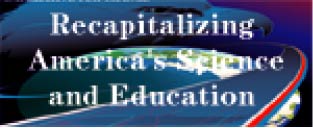Opening Statement of Senators Gary Hart and Warren Rudman, Co-Chairmen, United States Commission on National Security/21st
Century to the House Armed Services Committee on Tuesday, October 5 - 9:30AM. Opening Statement of Chairman Spence is also available. SEN. RUDMAN BEGINS: Mr. Chairman, members of the Committee: It is a great pleasure for us to be here today to discuss with you the work of the United States Commission on National Security/21st
Century. As you all know, this Commission was chartered in 1997 under the Federal Advisory Commission Act, with the sponsorship of the Congressional leadership, the White House, and the Department of Defense, to be the most comprehensive reassessment of the structure and processes of the American national security system since the passage of the National Security Act of 1947. The fourteen Commissioners and the Commission staff have taken this mandate to heart. We have worked hard to make a difference, because we all believe firmly that, left to drift without a conscious and concerted effort at re-design, the U.S. national security system will end up dangerously out of synch with both the dangers and the opportunities that a changing world is even now generating.
The Commission's work is designed as an integrated three-phase effort. The first phase, which we completed on September 15th after nearly a year's labor, and which we are here today to discuss, is descriptive in nature. It has aimed to discern the shape of the new world coming between now and the year 2025. The second phase is generally prescriptive. Due in April of next year, it calls for the development and elaboration of a U.S. national strategy appropriate to the world
forecast in phase one. The third phase is more specifically prescriptive. Due to be handed to the next President of the United States in the winter of 2001, its task is to carefully analyze the U.S. national security system, and propose changes to it as deemed necessary, so that it may effectively implement the strategy proposed in phase two. We believe that this tripartite structure makes good sense. We believe that you have to start with the facts before engaging in strategy building,
and that you have to know what you want before you can properly organize yourself to get it. Establishing "facts" about the future, however, isn't easy. But we have strained to do the best we could, and, I must say, we worked with a major advantage on our side. We have had the honor of working with a very impressive group of Commissioners. They are very widely and deeply experienced men and women. More important, they are an independent, and fully bipartisan, group that has
nonetheless managed to come to a strong consensus over very difficult and sometimes controversial matters. All of the Commissioners have been actively engaged in this effort from the start. Not only have we met often as a group—as recently as yesterday—but we and the Commission's executive director, Gen. Charles Boyd, have been in touch with each other on a weekly, and often on a daily basis. Some Commissioners have sat with staff members over drafts of sections of the phase one report
literally for hours to make sure they were just right, and here I especially want to note the tireless efforts of Jim Schlesinger. If anything, we as a group will work even harder on phase two, and hardest of all on phase three. But that is not why we are here today. It would not be appropriate or honest of us to speculate about what we might say in our phase two or phase three reports. That is because we have not yet done the work. But we are willing and eager to discuss with you what we
learned from our phase one effort. I now turn to my fellow co-chairman, Senator Gary Hart, to continue our opening statement. Senator Hart continues: Since the fall of the Berlin Wall, the world has begun to change with dizzying speed. With the paralysis of the Cold War broken, captive nations have breathed anew the air of freedom. New states have been born, as well, sometimes in peace but sometimes, regrettably, in war. New patterns of innovation in science and technology have
emerged. Wedded to increasingly integrated global economic processes, these patterns of innovation are rapidly transforming the international economy. Taken together, the technological and economic changes before us are putting novel pressures on states. Some are adapting well, but many find themselves suspended between the habits of old ways and the promise of new ones. In the balance, world politics has become simultaneously more hopeful since the collapse of communism, but also more
fragile as new forces have been unleashed upon the unwitting and the unprepared. This Commission's conclusions about the world we see emerging are not particularly comforting. We would not describe them as pessimistic, however. They simply are what they are. They are what we honestly see in the world's future. We believe that the United States will remain a principal economic, political, and cultural force in the world for at least the next 25 years. And we believe that the United States
will be the preeminent global military power throughout this entire period. But we also believe that there will be much resentment of American power and culture. We believe that the development of asymmetrical strategies to assault our interests and those of our allies will cause us real problems despite
our military superiority. We believe that some new technologies, benign as they may be for the most part, could have a dramatic leveling effect, allowing an increasing array of states, and even small disaffected or fanatical groups, to inflict enormous damage on unsuspecting civilian populations—including our own. We believe, as well, that the unprecedented integration of the international economy, while on balance a highly promising development, also bears many uncertainties and will
generate novel vulnerabilities for those who become dependent on its underlying infrastructure. We believe that pressures on states, including some large states, could lead to collapsing governments and disintegrating countries in some cases, bringing major regional crises in their wake. We believe, therefore, that crises abroad issuing mainly from the internal instability of states will continue to crowd the American foreign policy agenda. We believe, too, that developing effective ways to
cope with such crises, along with allies and appropriate international agencies and organizations, will require a far more systematic effort than has been made thus far. But let us say no more about this for now, lest we intrude on the two study phases in our future. The Commission has also concluded that, although the essence of war will not change, several aspects of conflict and combat will change. Space will become a more critical and competitive military environment. U.S. intelligence
will face more challenging adversaries, and even excellent intelligence work on our part will not be able to prevent all surprises. Non-state actors will probably play a larger role in issues of war and peace than they have heretofore. We have also concluded that U.S. alliance structures are likely to become more fluid, that the forward-basing we have relied upon for many years may be more difficult to sustain, and that technological gaps may make it harder for us to cooperate effectively
with allies and other partners in the field. Our phase one report deals with these and many other subjects, and, importantly, it does so in an integrated fashion, with all the parts relating to the whole. We will now be pleased to address your questions about it.








